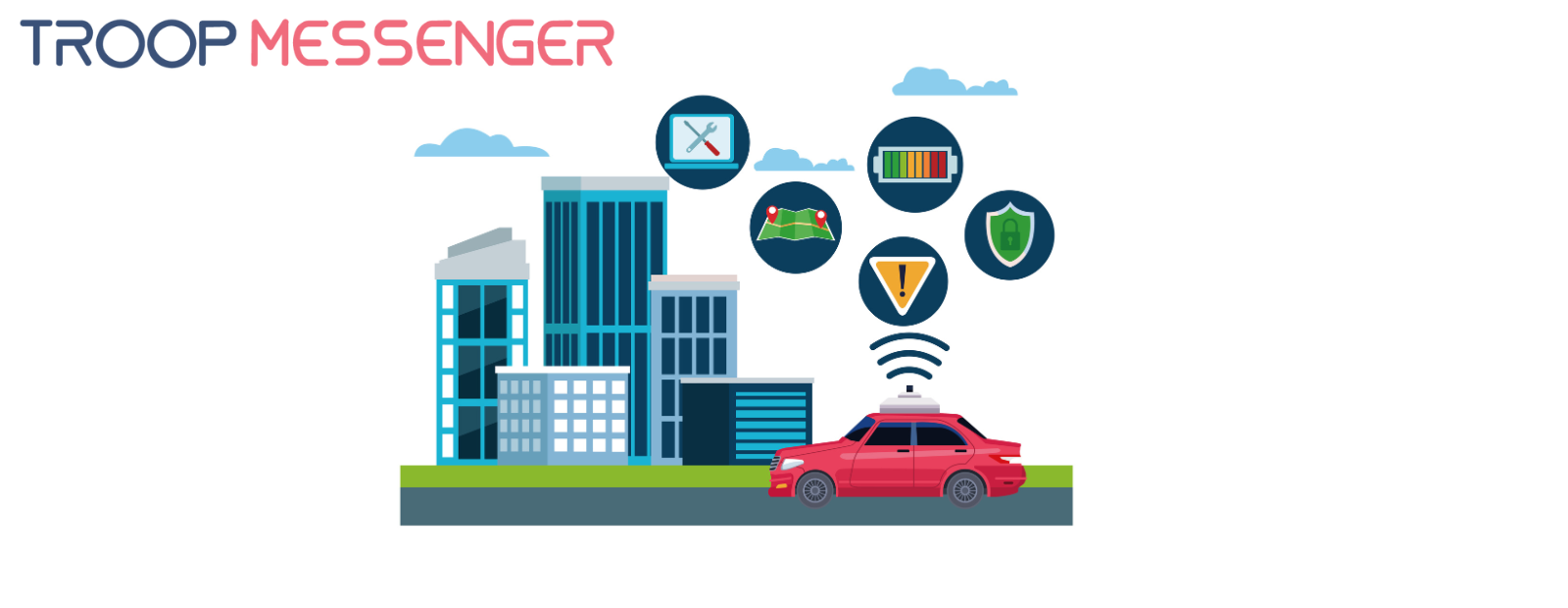Connect with us

Quality Assured: Your Guide to Earning and Excelling in the QA Profession
Quality assurance engineers use manual and automatic tools to test code architecture and ensure that the software's framework is reliable and functional as is and when scaled. QA experts are in demand, especially in certain industries like fintech, medicine, finance, and tech. In today's world, quality assurance has become an essential system and must be integrated with the wider software development framework. If you want to become a QA engineer, the first step is to create a QA tester career path.
In recent years, automation testing has changed the industry a lot. However, QA specialists are still needed to design test cases, analyze results, and handle complex scenarios that automation alone cannot address. QA software testing services brings significant benefits, such as increased efficiency, faster test execution, and the ability to run tests continuously. However, manual testing remains essential for exploratory testing, user interface assessments, and identifying nuanced issues that automated tests might miss. This article explores the guide to earning and excelling in the QA profession and the nuances of a quality assurance career path.
Earning in the QA Career Path
Quality assurance engineers are among the highest-paid addenda in the software development industry. Their roles are essential to the survival of software in a competitive industry. From healthcare to finance, QA experts must ensure software developers comply with essential rules for creating software frameworks and coding. In today's world, developers are required to not only write codes but also write needed codes, communicate with other developers through their codes, and ensure the scalability of the software.
The earning potential of a QA specialist depends on experience, location, and the type of job. For example, QA specialists in the US earn anywhere from $55,000 a year to $250,000 a year, with the average earners taking home around $120,000 a year. QA specialists in China and Eastern Europe generally earn less than their counterparts with similar experiences.
Freelance Versus Full Time
Freelance QA specialists mostly work from home or have a hybrid working system (they work from home most of the week and spend only a day or two in the office). Full-remote QA experts from home offices or bedrooms can work with a global team. Full-time QA specialists work with a company. Let's further explore the differences between freelance and full-time QA specialists and what you should aim for.
Job Security: Freelance QA specialists may have different job security than full-time specialists because they (freelancers) often have to work with various employers and are not fully committed to any of them.
Job perks: If you are concerned with perks like vacation, healthcare coverage, and career growth within an organization, you should work full-time with a company. However, if you are concerned about being the sole determinant of how your time is spent, a freelance job would be better.
Experience: A freelance QA specialist may have more experience than a freelancer because they get to work for different firms in different industries. On the other hand, a full-time QA specialist would work with a single firm, ensuring the functionality and capabilities of the firm's software. You should always consider specialization in your QA career growth path. When you specialize in one industry, you become an expert, and companies within the industry will demand your skills.
What skills and knowledge should be improved before an important interview?
When hiring Quality Assurance (QA) specialists, HR professionals are on the lookout for a blend of technical skills, soft skills, and industry-specific knowledge that align with their company's needs. Here are some of the critical skills HRs seek in potential QA candidates
Technical Skills
Testing Tools Proficiency is in the first place. Knowledge of popular testing tools like Selenium, JIRA, or TestRail is crucial. These tools manage testing activities and automate tests, which is vital for efficient QA processes.
Also, while not always mandatory, familiarity with programming languages such as Java, Python, or JavaScript can be a significant advantage. This knowledge allows QA specialists to write automation scripts and understand the software's backend processes.
A strong grasp of various testing methodologies, such as Agile, Scrum, or Waterfall, is essential. QA specialists should know how to adapt their testing strategy to fit different development environments.
Soft Skills
QA specialists must possess strong analytical skills to effectively identify issues and understand complex software systems.
Since QA's primary role is to find bugs and ensure quality, a keen eye for every detail is crucial.
Communication skills are vital when effective communication is key in articulating test results, collaborating with development teams, and explaining technical details to non-technical stakeholders.
Industry-Specific Knowledge
Depending on the sector, knowledge of specific industry standards and regulations can be crucial. For example, a QA specialist working in healthcare software development must understand HIPAA compliance.
With increasing concerns around data breaches and cybersecurity, skills in security testing and understanding potential vulnerabilities in software are increasingly valuable.
HR professionals also value continuous learning and adaptability in QA candidates, as the technology landscape is constantly evolving. QA specialists who show a commitment to keeping their skills current and who can quickly adapt to new tools and practices are highly sought after in the competitive tech industry.
Becoming Successful Using the Quality Assurance Career Path
If you want to become successful as a QA specialist, you must continuously improve your skills. Follow these tips:
1. Get professional courses and certifications: Professional courses are not formal but help you improve your skills with QA tools and methodologies. For example, it's important to learn different QA methodologies, such as black-box testing, penetration testing, unit testing, system testing, and security testing. You can also learn automated testing methodologies. Professional certification is important to your QA engineer career path.
2. Workshops: Attend workshops, webinars, and seminars and stay atop trends in the QA industry. You should also remain atop trends in the software development industries. New tools and frameworks may become the top choice for web developers, and as a QA expert, you must understand the basic frameworks of these tools to perform your roles.
3. Network: Always network with people in your industry, from celebrated experts to peers; reach out to people. Networking not only gives you insight into what others are doing, it improves your chances of getting great jobs.
4. Consistency: Consistent learning and advancing is the key to a successful career path for QA. It's possible to get a job where your role remains the same; however, it's important to constantly improve your reach and capacity to work with different tools. Ten years later, you'll either be one of the most sought-after and most-paid QA engineers, or you will still be doing the same old testing with the same old tools.
Popular platforms for obtaining relevant education
Quality Assurance (QA) is a crucial aspect of the software development lifecycle, ensuring that products are reliable, functional, and user-friendly. As technology evolves, so too must the skills of QA professionals. Fortunately, there are numerous platforms and resources available to help QA professionals enhance their skills and advance their careers.
Udemy offers a vast array of QA courses covering everything from basic software testing principles to advanced automation and performance testing. Courses like "Selenium WebDriver with Java" or "API Testing with Postman" are particularly popular among those looking to deepen their technical skills in QA automation.
Partnered with leading universities and companies, Coursera provides courses that delve into software testing fundamentals and specialized topics such as automated testing and the use of tools like JIRA. Their project-based learning approach helps practitioners not just learn but apply new knowledge directly to real-world scenarios.
Known for professional development, LinkedIn Learning features courses tailored to improving QA skills. These courses range from beginner to advanced levels and cover subjects like test management, continuous integration, and deployment practices integral to DevOps and Agile methodologies.
Pluralsight offers tech-focused courses that are ideal for QA professionals looking to specialize in specific technologies or methodologies. Pluralsight’s paths, like "Automated Testing: End to End," are comprehensive, covering test automation frameworks, scripting, and tools essential for modern QA processes.
Spearheaded by Applitools, Test Automation University is a community-driven educational program specifically designed for test automation. It provides free courses on a wide range of tools and programming languages used in automated testing, such as Selenium, Cypress, and Python.
Ministry of Testing is a global community that provides testers with a wide range of resources, including articles, courses, and webinars. It also organizes TestBash, a well-known testing conference that brings together QA professionals from around the world to learn about the latest testing practices and innovations.
Regarding ISTQB Certification, while not a learning platform per se, preparing for and obtaining an ISTQB (International Software Testing Qualifications Board) certification can significantly enhance a QA professional's credentials. The ISTQB offers various levels of certification, from Foundation to Advanced level, covering core QA principles, test management, test analysis, and more.
Each of these platforms provides unique learning opportunities that can help QA professionals at any stage of their career. Whether looking to brush up on the basics or dive into advanced automation techniques, ongoing education is key to staying relevant and effective in the field of quality assurance.
Conclusion
QA testing is integral to the software life cycle. QA begins in the pre-development phase and continues well after the product launch. As a QA engineer, your capacity to earn depends on your skills, network, location, and experience. You must continue to advance your industry knowledge and leverage your experience to work for firms and companies with the potential for financial and knowledge growth. When you rigorously follow your quality assurance career path and stay committed to the course, you can become experienced with the essential tools and methodologies in 3 years.








